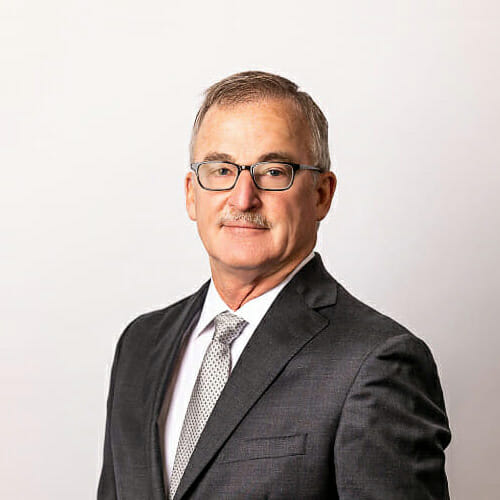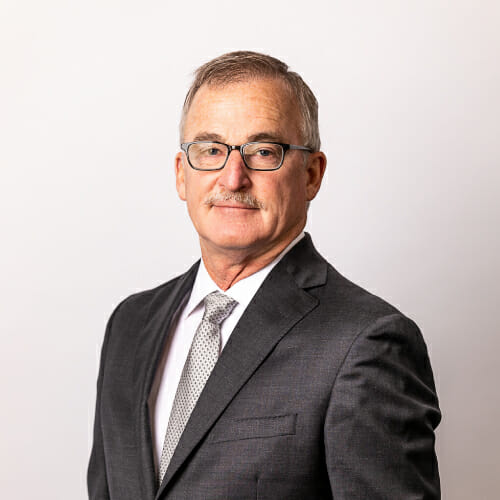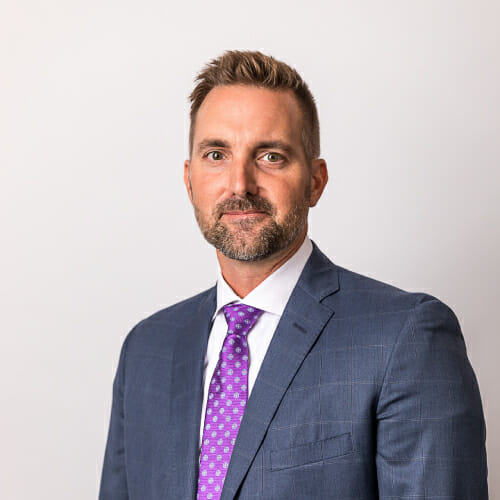$8.5
Million
Medical Malpractice Verdict
Indianapolis claim against a surgeon who failed to timely identify a small bowel obstruction. The jury returned a verdict for $8.5 million.
Orthopedic Malpractice Lawyer
In 2011, 79-year-old “CC” was experiencing severe low back pain which radiated down the back of her leg and into her calf. CC was referred to “MD,” an orthopedic surgeon who specializes in spine surgery and practices with a large group of orthopedic physicians at one of the major hospitals in Indianapolis. After obtaining a lumbar MRI scan and examining CC, MD recommended that she undergo an L4-L5 lumbar laminectomy surgery to be performed at the hospital.
On January 11, 2011, the surgery was performed as scheduled. Unfortunately, CC was in such severe pain after the surgery that, after release from the hospital, she had to go to a nursing home for two weeks of rehabilitation before she was able to go home. After returning home, CC’s low back pain improved very little. Six weeks after surgery she returned to MD and expressed her concern. MD advised that she had severe arthritis in her back and that he had not guaranteed that all her back pain would be relieved by surgery. No further testing was ordered and CC left with no further follow up appointments scheduled.
CC assumed she just had to live with the pain. However, 18 months later, in the summer of 2012, the pain got so bad that CC sought further medical care in an effort to relieve her pain. She was referred to “AA,” another orthopedic spine surgeon. AA examined CC and reviewed her X-rays and an MRI scan which was done several months earlier. AA then obtained and reviewed MD’s January 11, 2011, operative report. Much to AA’s surprise, the MRI and X-rays conclusively showed that MD had performed the lumbar laminectomy at L3-L4, which was the wrong level of the spine! It was obvious from the medical records that MD was unaware that he had performed the surgery at the wrong level. Surgeon AA wrote a very detailed letter to CC stating clearly and unequivocally that MD had performed the surgery at the wrong level and that she would need to have the surgery again at the L4-L5 level.
A couple of months before the two-year statute of limitations would expire, CC came to my office to discuss her options. After listening to CC’s story, we obtained all of her pertinent medical records and radiology films. I was familiar with MD, her original surgeon, and sent a letter to his attorney advising him of CC’s situation and provided him with a copy of the letter from surgeon AA, confirming that MD had performed surgery at the incorrect level, as well as copies of MD’s records.
I assumed, very incorrectly, that when confronted with this terrible mistake, MD and his medical malpractice insurance carrier would want to quickly and professionally address the matter.
I asked MD’s attorney if MD and his insurance carrier, Medical Protective, would agree to extend the statute of limitations for a couple of months to see if a settlement could be reached. After MD’s attorney consulted with Medical Protective, I was advised that they refused to extend the statute of limitations. A timely complaint was then filed against MD with the Indiana Department of Insurance.
After the complaint was filed and served upon MD, the same attorney I had been dealing with for some time was retained to defend MD. That attorney filed a formal answer to the complaint. I felt a direct and professional approach to this matter would be appreciated by all involved and would save both time and money. I sent a letter to MD’s attorney asking once again if, based upon the facts of this case, the matter could be settled without the necessity of forming a medical review panel of three independent orthopedic surgeons to review this case. I again asked if MD’s insurance carrier, Medical Protective, would make any offer, and was again told “no offer would be made without a medical review panel decision,” to determine if operating at the incorrect level of CC’s spine met the standard of care for orthopedic surgeons.
The process to select a Chairman for the review panel and then three members of the medical review panel took months. I took the deposition of MD, during which he admitted that he had operated at the wrong level — where CC did not need surgery. MD further admitted that he did not meet his own standard of medical care.
With MD’s admission that he had operated at the wrong level and had not met his own standard of medical care, yet another request was made to Medical Protective to make an offer to settle this matter. The answer was still the same: “No offer would be made.” My belief was that Medical Protective wanted to delay this case in the hope that CC would pass away. If that were to occur, the value of her claim would be significantly reduced. There was no other logical conclusion.
CC was 83 years old and now needed a second spine surgery to address the original problem that was not properly addressed in January of 2011. Additionally, she was forced to proceed with fighting MD and his insurance carrier’s defenseless position. Fortunately the second surgery, in August 2013, proceeded without any major complication and CC’s low back and radiating leg pain were resolved.
The Medical Review Panel was convened in April 2014, and the three orthopedic surgeons unanimously agreed that MD did not meet the standard of care when he operated at the incorrect level of CC’s lumbar spine. Even with MD’s sworn testimony and the Medical Review Panel’s unanimous decision, Medical Protective still refused to make any offer. CC’s only option was to submit the matter to a jury.
Finally, four months before the scheduled jury trial was to begin, a mediation was held and Medical Protective finally offered to settle CC’s claim. By this time, CC was 84 years old and she did not want to be forced to go through the rigors of a jury trial. In my opinion, the offer that she accepted was too low for the pain and anxiety that she had experienced, but she agreed to settle her claim.
To discourage other individuals such as CC from filing medical malpractice claims, Medical Protective’s motto seems to be to “Punish the victim.

 Mike Stephenson has 40 years of experience and is a trusted advisor to many individuals and companies. His current practice is dominated by civil litigation in state and federal courts. He focuses much of his time on handling catastrophic injuries caused by all types of accidents, including motor vehicle, trucking, workplace injuries, product liability, and fire, just to name a few. He also works extensively in construction accidents. [
Mike Stephenson has 40 years of experience and is a trusted advisor to many individuals and companies. His current practice is dominated by civil litigation in state and federal courts. He focuses much of his time on handling catastrophic injuries caused by all types of accidents, including motor vehicle, trucking, workplace injuries, product liability, and fire, just to name a few. He also works extensively in construction accidents. [ 


